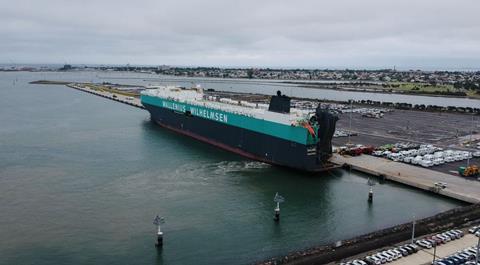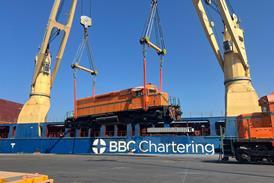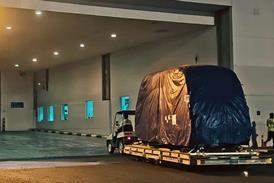Ports across Australia remain heavily congested due to a large amount of cargo arriving with seed contamination, in turn impacting a host of ro-ro services.

Wallenius Wilhelmsen provided an update on the situation on March 20, noting: “The congestion in Australian ports remains at a critical level as large proportions of imported cars continue to fail quarantine inspections after discharge.
“Consequently, terminal congestion and vessel delays persist which has resulted in all ro-ro carriers reducing services to Australia, and Melbourne in particular. Terminal operators in other Australian ports are also capping transhipment volumes to avoid further congestion by cargo that is being diverted from Melbourne.”
It added that the current average waiting times in Melbourne is around 15-20 days. In Port Kembla it is around 9-10 days, Brisbane 5-6 days, and Fremantle 8-10 days.
According to Wallenius Wilhelmsen, the number of units still failing Department of Agriculture, Fisheries and Forestry (DAFF) inspection on arrival, mainly due to seed contamination, continue to outweigh the industry’s capacity, including terminal and off-wharf treatment facilities, to treat and clear the cargo in a timely and efficient manner.
The carrier said that recently it is also seeing an increased number of high and heavy units being held for seed contamination in Australia, in addition to cars, which has been the segment impacted most until now.
“There has been no material improvement in the high percentage of units failing the DAFF quarantine inspection on arrival, although encouragingly, we do see some OEMs having put effective measures in place at the country of origin which are resulting in DAFF clearances without the need for further treatment, something we need more of as these cases are a minority,” said Wallenius Wilhelmsen.
“We continue to strongly encourage customers to closely examine possible bio-security risks in the supply chain prior to loading of cargo onboard vessels as this is the most effective way to mitigate biosecurity risk and avoid delays at Australian ports of discharge. We are working across regions to share best practices with OEMs, shippers, and consignees, helping to standardise processes that can reduce delays once the cargo arrives in Australia.”
















